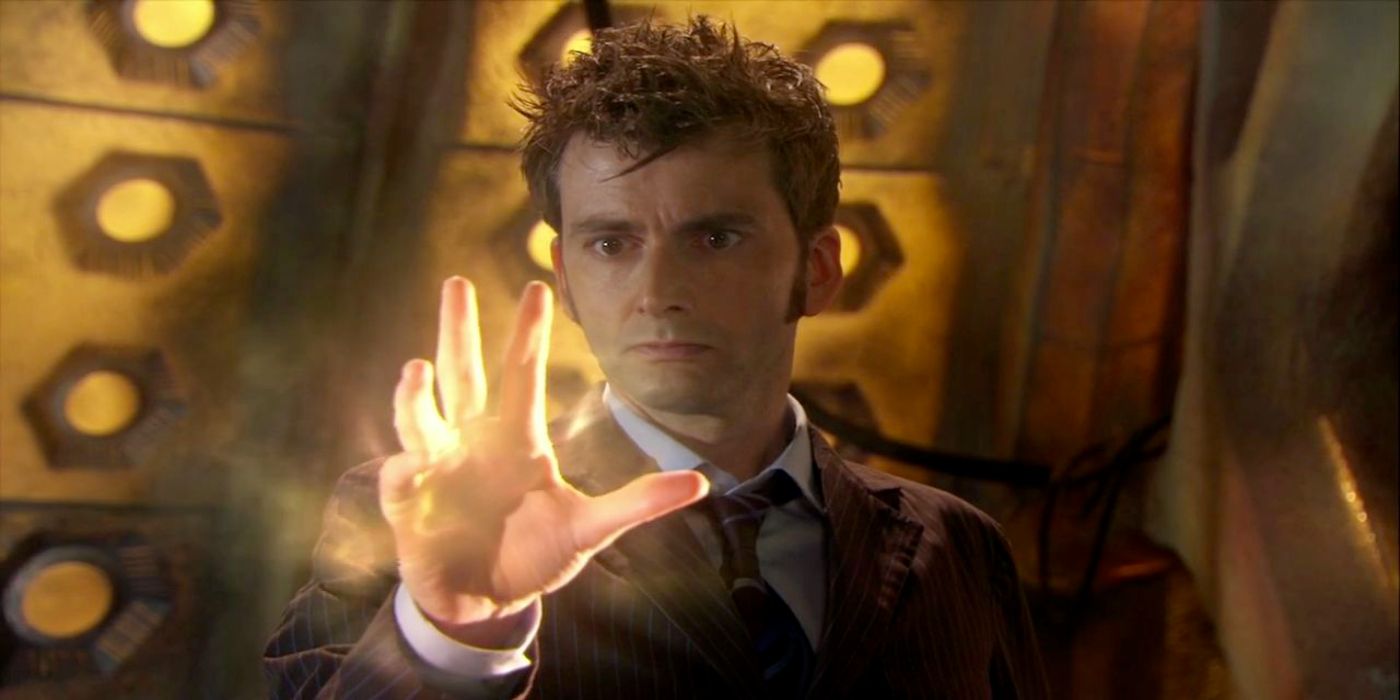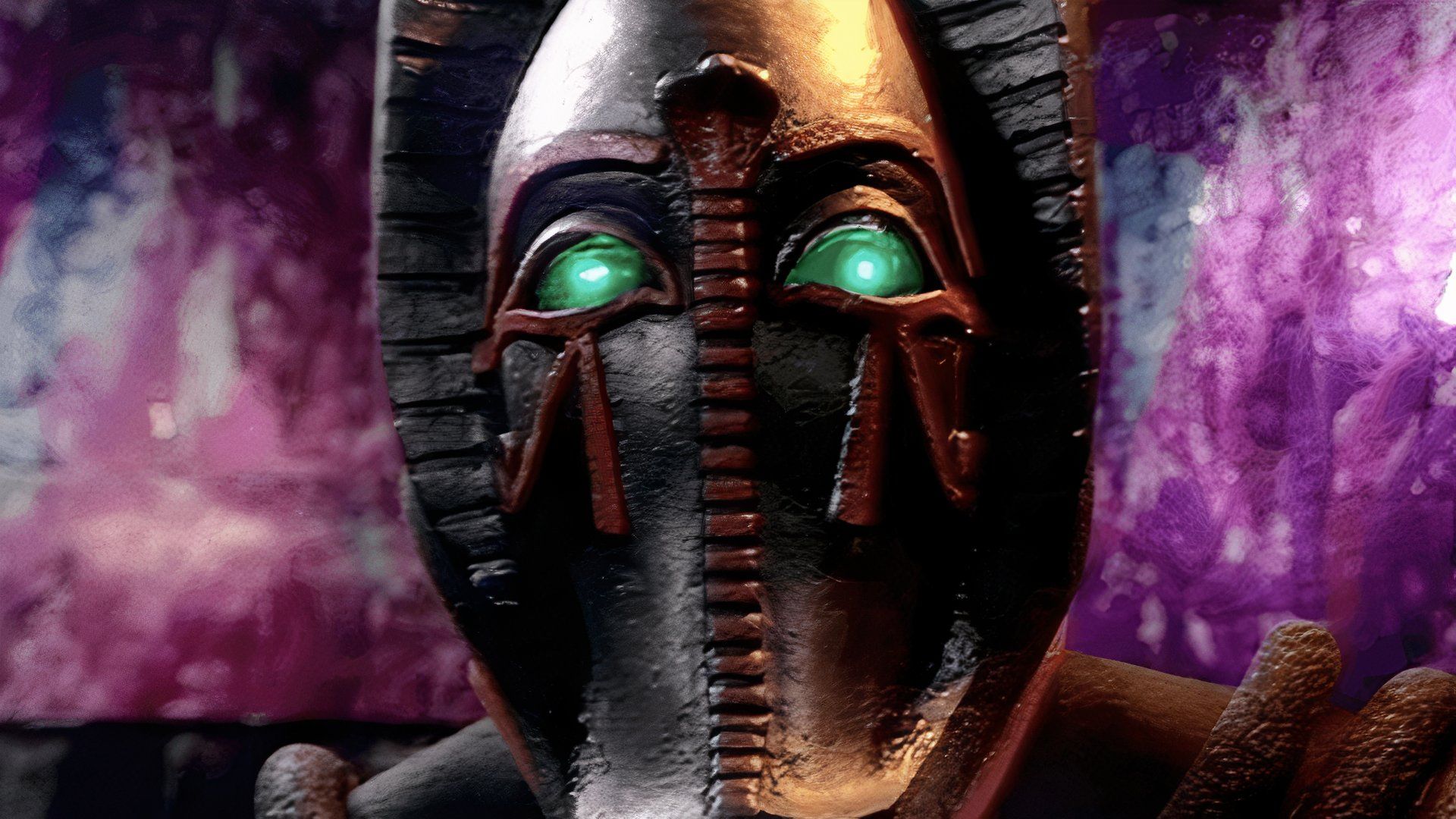Summary
- Doctor Who finale reveals Suketh’s long-awaited return and a controversial reveal about Ruby’s mother, Louise Miller.
- Suketh manipulates the Doctor’s past adventures, but Ruby and the Doctor use wit to outsmart him and save the universe.
- Series 14 tackles themes of false deities and the importance of ordinary individuals in a meta-commentary on the franchise.
Warning: This article contains spoilers for Doctor Who episodes “The Legend of Ruby Sunday” and “Empire of Death.”Doctor Who Season 14, internally referred to as series one as an indication that it is a clear jumping-on point for new viewers, has finally wrapped up its run. The season saw the 15th Doctor (Ncuti Gatwa) and companion Ruby Sunday (Millie Gibson) go on a series of adventures across time and space. For eight episodes, plus a Holiday special that aired last Christmas, there has been an overriding mystery regarding the identity of Ruby Sunday’s mother, who the Doctor was unable to see. This is because he was locked out of revisiting that place in time after needing to alter time to save Ruby during the Christmas episode.
That, as well as a mysterious big bad, was teased throughout the season, and the penultimate episode, “The Legend of Ruby Sunday,” teased the mystery of Ruby’s mother while also revealing the villain, Sutekh, had been hiding on the Doctor’s TARDIS for years. The finale, “Empire of Death,” has caused a great deal of controversy since it aired. Here is everything that happened in the finale and why it is actually a great resolution to the story.
Doctor Who
- Release Date
- November 23, 1963
- Seasons
- 14
It Was Sutekh All Along
Sutekh was a villain who debuted in 1975 during the four-part “Pyramids of Mars” storyline, which was led by Tom Baker’s Fourth Doctor. Suketh was The God of Death, a member of an alien race called the Osirans, and was seemingly defeated in that episode. Yet “Empire of Death” revealed that Suketh had latched onto the TARDIS and had been growing more powerful ever since.
In effect, every Doctor Who story since 1975 has had Suketh waiting in the background. Everywhere the Doctor landed his TARDIS across time and space, Suketh has spread some of his evil dust, which has populated everywhere with a piece of himself, a hareld in the form of a woman named Susan (Susan Twist) who will activate and bring about death to everyone. Suketh accomplishes his goal, wiping out life across time and space, including destroying the Doctor’s most iconic foes, The Daleks.
Suketh, however, does not kill Ruby or the Doctor, as he has become obsessed with the identity of Ruby’s mom. The Doctor and Ruby are able to manipulate Suketh’s desire to know the truth and trick him by attaching a special “intelligent rope” that was set up in the Christmas Special onto Suketh and then use the TARDIS to drag him into the time vortex. The Doctor forces Suketh to reverse all the deaths he has caused through the universe.
The Doctor then, when he breaks his vow of pacifism, kills Sutekh by releasing him into the time vortex. While one would wonder why this would kill Suketh after he spent centuries living on the TARDIS that traveled across time and space, it is because he is not attached to it. Doctor Who has established that the TARDIS does have a force field radius that allows its occupants and anyone outside of it protection from the time vortex.
As for the identity of Ruby’s mother? The one that Doctor Who had been teasing and that Suketh was so obsessed with? Well, that is the most controversial but best decision the series makes.
Ruby’s Mom Is Ordinary
The episode finally ends with Ruby Sunday’s mom being identified. After months of fan speculation, she is revealed to be Louise Miller (Faye McKeever). If that name doesn’t sound familiar, well, that is the point. Louise Miller is just a normal woman who was a then-15-year-old girl who left Ruby because of her extreme youth and family circumstances. Despite being a normal woman, Suketh and, by extension, the Doctor himself assumed her to be important because they believed her to be.
The mysterious happenings around Ruby, particularly why it begins to snow like it did the night of her birth, appear to have been the result of Sutekh assuming Ruby’s mother held the key to defeating him. This then unwittingly led to willing Ruby to be more powerful than she really was because Suketh bought into the hype and, in effect, other powerful deities like The Maestro (Jinkx Monsoon) from “The Devil’s Chord” to believe Ruby was so powerful.
If the idea of a young woman with a mysterious background that seems to hint at a greater cosmic destiny revealed to come from humble origins sounds familiar to you, that is because it is deliberately designed to be like the reveal of Rey from Star Wars: The Last Jedi before The Rise of Skywalker revealed her to be a Palpatine. Showrunner Russell T Davies explained in the BBC iPlayer commentary of “Empire of Death” that this episode was, in many ways, his response to The Rise of Skywalker. He said:
“This is kind of my reaction to – bear with me now – the Star Wars films. I can’t remember their titles but, in the last trilogy, [The Last Jedi] said that [Daisy Ridley’s Rey] was nothing special. There was nothing special about her parentage. That she just got the Force…an ordinary person with the Force. And then, in [the Rise of Skywalker], they changed it all so that she was this child of the Emperor…and I really loved the version where she wasn’t special.”

Related
Doctor Who: New Era Regenerations, Ranked
The new Doctor Who series has been airing for 18 years and has featured multiple regenerations. These are the best ones, ranked.
Russell T. Davies did what many Star Wars fans wish they could do: tackle their issues with The Rise of Skywalker head-on. Just as with Rey’s reveal in The Last Jedi, the response to Ruby’s parentage has been controversial. Just like with Rey, many people invested a lot of fan theories into the identity, and due to the nature of Doctor Who storytelling with past companions like Clara Oswald as “The Impossible Girl,” Rose Tyler as “Bad Wolf,” or the Doctor’s wife River Song, there was a pre-existing assumption that Ruby and her parentage had to be important. With how much screen time was dedicated to the mystery, it couldn’t just be for nothing, could it?
But it isn’t for nothing, and in fact, it might be one of the cleverest pieces of Doctor Who writing in recent years. While some fans might think that Ruby’s mother is a “nobody,” it is a cheap reveal; in fact, it restores something that has been lost to Doctor Who for a while. In 2010’s Christmas special “A Christmas Carol”, Matt Smith’s 11th Doctor says, “In 900 years of time and space, I’ve never met anyone who wasn’t important.”
Years of recent Doctor Who storytelling have put an extra emphasis on mysteries surrounding the companions, making them special people, but this has taken away from the initial fantasy of the franchise that anyone could look out their door, see the TARDIS, and be brought on board to go on a wonderful adventure. The Doctor does not pick companions based on powers or importance to the wider universe but because he likes them, which makes them important to him. Everybody is important to somebody, be it Ruby to the Doctor or what Ruby thought of her mom. Ruby did not need to reveal that her mother was a Time Lord or an ancient power because anything would be groundbreaking to her.
Worshipping False Deities
Series 14 of Doctor Who has also been preoccupied with “gods” or ancient powerful forces. From The Toymaker in “The Giggle” to the Maestro in “The Devil’s Chord” to now Suketh, these recent episodes have been about pitting the Doctor against powerful cosmic entities that are worshiped as gods. The idea of ancient gods of myth and legend drew their powers by having humans believe in them, a concept that has been explored in projects like 2010’s Clash of the Titans or even Neil Gaiman’s American Gods.
With Ruby Sunday, Doctor Who has now flipped the script. What happens when gods believe in humans? If they project power and meaning onto them, do they not become embedded with cosmic power and importance the same way they do? What happens when gods give meaning to humans instead of the other way around?

Related
How Nearly 100 Episodes of Doctor Who Went Missing
Since its premiere in 1963, there have been a whopping 39 seasons and 871 episodes of Doctor Who. But not all of them have survived.
In many ways, Suketh embodies a certain type of fan who is only obsessed with lore and canon in favor of meaning and overall story. Suketh’s grand plan to trick the Doctor is playing off the Doctor Who canon by making the Doctor (and the audience) believe the Susan figure he is seeing across time and space is, in fact, Susan Foreman, his long lost granddaughter who was played by Carole Ann Ford as a companion to the first Doctor. Suketh has clung to the TARDIS for years, observing the story but quietly resenting the Doctor, similar to fans who hate a specific property instead of just moving on and finding a new thing to watch. All he cares about is the answer and not the meaning.
While “The Empire of Death” might not be the best Doctor Who finale or even the best episode of Season 14, it is still a strong finale episode that nicely wraps up a mystery in an emotionally relevant way that serves as a strong piece of meta-commentary. For all of you Doctor Who fans who were upset about that twist reveal, it might have been a misdirect to draw attention away from the identity of Mrs. Flood (Anita Dobson), Ruby’s neighbor who seems to be hiding a lot more than she is letting on. Some fans might throw up their arms and think it is pointless to speculate, but it appears that Mrs. Flood’s identity is worth speculating about, while Ruby’s mother was always a misdirect. Stream on Disney+.






